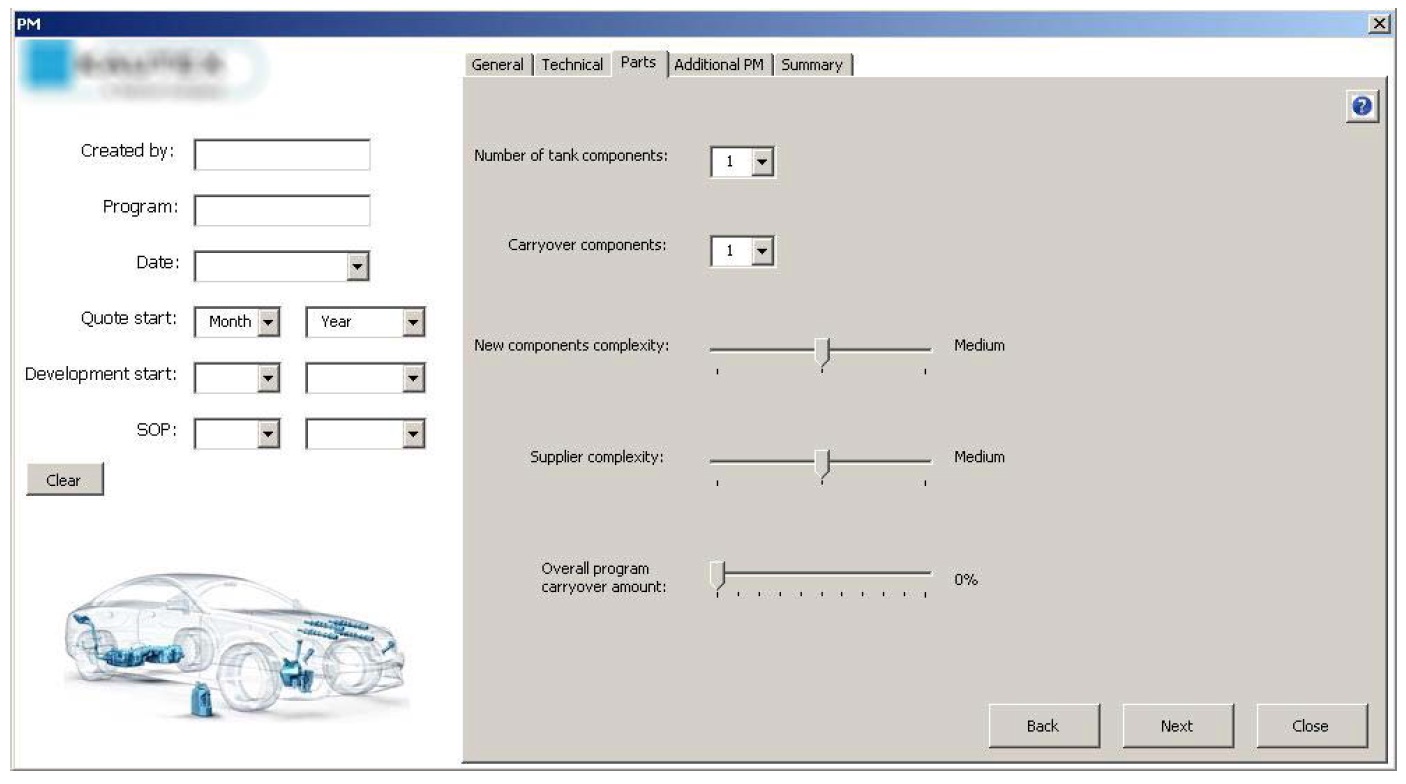Automotive industry has proven to be one of the most challenging environments for new product development. Constant advancements in manufacturing technologies and development processes put out by the OEMs, makes it very demanding for the suppliers to keep up the pace with the ever changing market needs. Fuel tank development and manufacturing is considered to be part of the industry impacted by the strict emission rules for automotive industry thus being heavily conditioned by the OEMs emission requirements. In industry that dynamic and with market that depends on global economy, it is of crucial importance to execute projects with great efficiency in a reasonable period of time. Project could be called efficient if the goals are met in time and within planned financial framework while quality of the product is not compromised. Companies that have well planned and thought out projects have a competitive advantage over others, and they are consequently more likely to have more positive project outcomes. One of the most important aspects of project planning is establishing the financial framework and offering a competitive quote to the customer. Way to achieve that is to estimate total project costs as accurately as possible. There are several methods for cost estimation techniques that could be used, depending on the type of the project and the phase in which the estimation is being done. Most common methods are qualitative intuitive ones. However, for the companies with proven track record and extensive experience with the particular product over the years, it is possible to use quantitative methods in the form of parametric or analytical cost estimations relying on history data of previous projects. For observed case, the fuel tank development, parametric cost estimation method has proven to be the method of choice.Parametric methods usually use regression techniques, although there are also possibilities to use advanced algorithms such as fuzzy methods. Tool creation was motivated by initial observation of the existing estimation methods and the fact that the program management department didn’t have any standardized procedures in the cost estimation process. The focus of this thesis is on analysis of the estimation procedures, history data and the possibilities for improvements. Furthermore, the goal was to create the usable tool for cost estimation, primarily for program management department, and to give the overview of using the well known regression techniques as opposed to the advanced fuzzy algorithms. The tool was created in a way that allows influence of an expert on calculated estimation because positive influence can compensate possibly small sample of data. Moreover, the tool was created in a way that if more data is to be analyzed, it would be easy to improve the estimation accuracy by simple intervention to the code.

Marko Mandić
2016
Master thesis